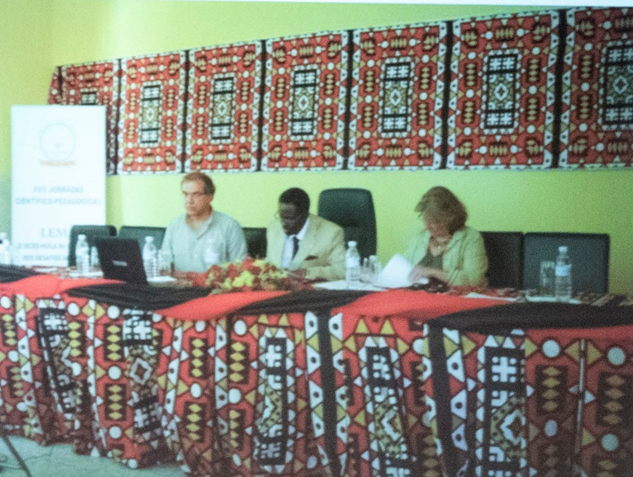UNESCO Chair Life on Land
Complying with its institutional internationalization strategy, based on the development and expansion of the current scheme of research collaborations through sustainable and innovative initiatives, CIBIO-InBIO has established a network of TwinLabs abroad, with emphasis on Portuguese-speaking African countries, with the aim of jointly develop research, advanced training and capacity building.
In 2012 the first TwinLab was officially established in Angola, at the Herbarium and Zoological Museum of the Superior Institute of Education Sciences of Huíla (Lubango), followed in 2015 by the TwinLabs of Mozambique, at the Chókwè Health Research and Training Center, and of South Africa, at the University of Johannesburg. In 2016 the agreements related to the Twinlabs of Cape Verde, at the University of Cape Verde, and of Namibia, at the University of Namibia were signed; in 2017, the Twinlab of Zimbabwe (University of Zimbabwe) was officialised; and, from 2019, the University Mandume Ya Ndemufayo became part of the TwinLab of Angola. Still in 2019 integration agreements were established between CIBIO-InBIO and the Midland States University and the Bulawayo Museum regarding the TwinLab of Zimbabwe; also with Namibia University of Science and Technology, with respect to the TwinLab of Namibia; and with Universidade Onze de Novembro (Cabinda), concerning the TwinLab of Angola. That same year, the creation of a TwinLab in Botswana was decided, to be integrated by the Okavango Research Institute and the San Research Centre, both from the University of Botswana. In 2021 a new base of the TwinLab of Angola was created, in the region of Cuando-Cubango, grounded on a direct agreement with the Provincial Government. Preparatory work still under way for the implementation, among others, of TwinLabs in S. Tomé e Príncipe and Guinea-Bissau.
In November 2017, the UNESCO Chair Life on Land was awarded to the University of Porto, with the specific aim of fostering schemes of interaction between the TwinLabs, namely through coordination actions for the reinforcement of scientific and technological competences, advanced training of human resources and knowledge transfer.
The UNESCO Chair Life on Land has also the purpose of promoting the linkage between science and society in the partner countries through initiatives to raise awareness for the urgent importance of preserving the biodiversity and natural heritage in Africa, by mobilizing the ordinary citizen to carry out practical actions at this level.
Aligned with the efforts to respond to the Sustainable Development Goals of the 2030 Agenda for Sustainable Development (United Nations), and assuming the specificity of promoting the collaboration between Portuguese-speaking and of official English language African countries, the programme can constitute an efficient tool to ensure the preservation of the environment and the sustainable use of natural resources, a pressing need in view of the increasing degradation of the ecosystems in Africa, continent in which the challenges and problems that constrain biodiversity conservation efforts are significantly frequent.


